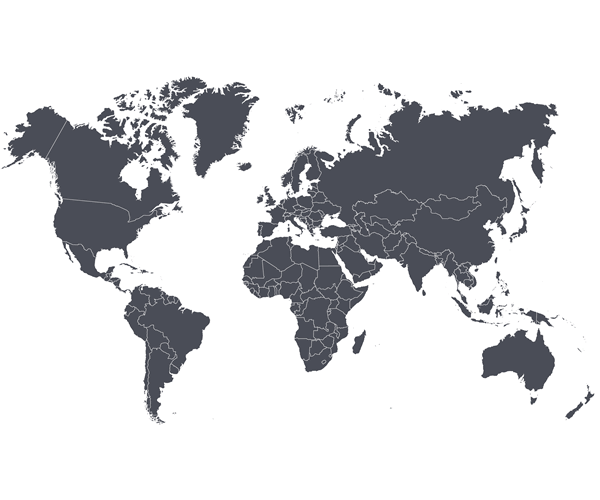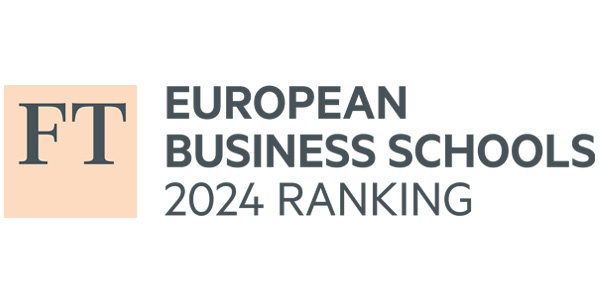MSc Work & Organisational Psychology
ApplyKey facts
- Start date: September
- Accreditation: Professional Membership of the Chartered Institute of Personnel & Development at Associate Member, Chartered Member or Chartered Fellow level
- Study mode and duration: 12 months full-time
Study with us
- gain knowledge about applying psychology to people, work and organisations
- learn advanced quantitative and qualitative research methods for psychology and develop data analysis skills which can be applied to the workplace
- ideal for professionals seeking a career change, or for those who recruit, manage, counsel and develop people and wish to gain further understanding of psychology at/of work
- taught alongside the British Psychological Society (BPS) accredited MSc Occupational Psychology, you'll cover the same modules apart from the core research methods training and have additional elective options
- employability is at the heart of the programme design
- MSc Work & Organisational Psychology provides a route to a career in the ‘people’ profession
- gain professional membership of the Chartered Institute of Personnel and Development
- benefit from professional networking opportunities – free places at the online CIPD Student Conference, where you can connect with industry leaders and fellow HR professionals, and funded places available to attend the HR Network Conference and Exhibition annually, allowing students to learn from leading HR experts and expand their professional networks.
Please note: if you hold a BA Psychology degree which provides you with the Graduate Basis for Chartership (GBC) of the British Psychological Society (BPS), see our Occupational Psychology.
Why this course?
You'll develop knowledge in psychology and build analytical skills which can be applied in a range of careers, including occupational psychology, management, human resource management, recruitment, health and safety, engineering, the public sector, training and development, organisational change and development consultancy, and policy research.
The course is designed for those with an undergraduate degree in psychology or those from other backgrounds who wish to specialise in applying psychology to work and employment.
Our teaching team draws from academics who are chartered psychologists, practitioners with industry experience, and expertise from a range of disciplines across the University of Strathclyde. Strathclyde Business School is home to many staff focused on the application of psychology to work and organisations, and has extensive collaborations with industry, policymakers and practitioners.
The Department of Work, Employment & Organisation, where the programme is based, is a Chartered Institute of Personnel and Development (CIPD) Approved Centre. The Department is recognised for its world-leading research and its real-world impact.
Employability
Employability, and the acquisition of technical knowledge and soft skills, is at the heart of this programme. You will be taught by academics and practitioner psychologists and will be given the opportunity, through seminars and lectures, assessments and feedback, to understand how theory is applied. This is picked up in People Analytics and Professional Practice modules specifically, whereby the design of the module is aligned to the BPS consultancy cycle.
In addition, the ability to build social capital is a key employability factor enabled within the department. You will be expected and encouraged to engage with wider University events, such as attending departmental and Business School seminars and also attend our Away Day and Research Conference, providing you with the opportunity to build up your network. To deliver useful learning, we encourage external engagement and have built professional networks across the UK and internationally, for example, the British Psychological Society, Health Care and Professions Council, European Association of Work and Organisational Psychology, and employer organisations.
Through various core and elective modules, technology and its impact on people and work is explored. You will develop a critical understanding of how advances in technology and new approaches to human factors and ergonomics are shaping and influencing the organisation of people at work, what people do in work and how they experience work. You will engage with key debates on the impact of technology on jobs, skills and tasks. Artificial Intelligence and machine learning algorithms is covered with respect to how such development may have an ethical impact on job applicants and employees in core areas of practice.

What you'll study
Classes cover seven core knowledge domains of work and organisational psychology:
- psychological assessment at work
- learning, training and development
- leadership, engagement and motivation
- wellbeing and work
- work design, organisational change and development
- applying psychology to work organisation
- research design, advanced data gathering and analytical techniques
Cross-disciplinary electives also allow you to choose specialist classes, for example, in data science, health analytics, and human resource management/organisational development.
You'll take 180 credits over two semesters, made up from core and elective modules.
Graduate Basis for Chartership with the MSc Occupational Psychology
You'll gain the Stage 1 qualification towards professional membership of the Division of Occupational Psychology with the British Psychological Society, if you:
- hold a BA Psychology degree which provides you with the Graduate Basis for Chartership (GBC) of the British Psychological Society (BPS)
and - complete MSc Occupational Psychology
You do not need to have GBC to attend our MSc Occupational Psychology, you’ll still gain the same knowledge and skills.
If you do not have GBC, but wish to gain it, you can take one of the following steps:
- check with the BPS whether your degree could be given 'special case' consideration that could provide you GBC
- complete a conversion course before entering the programme
- complete the MSc Occupational Psychology and then subsequently gain GBC from a conversion course
Accreditation
Chartered Institute of Personnel and Development
Professional Membership of the Chartered Institute of Personnel & Development at Associate Member, Chartered Member or Chartered Fellow level.

Strathclyde Business School
Strathclyde Business School was founded in 1948 and is a pioneering, internationally renowned academic organisation with a reputation for research excellence.
One of four faculties forming the University of Strathclyde, SBS is a triple-accredited business school (AACSB, EQUIS and AMBA) and was the first business school in Scotland to achieve this accolade in 2004.
The Business School is home to seven subject departments and a number of specialist centres, all of which collaborate to provide a dynamic, fully-rounded and varied programme of specialist and cross-disciplinary courses.
Strathclyde Inspire
At Strathclyde, we live and breathe entrepreneurship. The University of Strathclyde started life as a place of useful learning, an institution that wanted to make a difference through dong things innovatively, boldly and socially oriented; this founding mission has never been more relevant. Today, we continue to nurture generations of influencers, innovators and industry leaders, empowering our staff, students and alumni to embrace entrepreneurship, transforming their own lives and the lives of others.
Strathclyde Inspire supports and encourages entrepreneurship in all its forms, so whether you want to be more entrepreneurial in your approach to life, business and society, have an idea for a business, or are considering commercialising your research, we will support you at every stage of your journey.
Strathclyde Careers Service
As a student at Strathclyde, you’ll have access to our award-winning Careers Service. Our experienced careers team are here to support you with your career goals at every step of your journey.
You’ll have access to our award-winning Careers Service, offering a full range of support, including:
- digital resources
- events calendar and exclusive job vacancies
- one-on-one career consultations
- The Mastering Your Career programme - designed specifically for MSc Business School students, combining workshops and digital tools to help you achieve your professional goals.
As a graduate of Strathclyde, you can come back and use the Careers Service for up to 5 years after graduation.

The programme's focus on practical skills and real-world applications of psychological theories and principles has helped me to develop the skills needed to succeed in a variety of organisational settings. The accreditation from the British Psychological Society is a significant factor in making this programme more attractive.
MSc Occupational Psychology
International students
We've a thriving international community with students coming here to study from over 140 countries across the world. Find out all you need to know about studying in Glasgow at Strathclyde and hear from students about their experiences.

Triple-accredited business school
Assessment & Selection at Work
This class engages with contemporary knowledge about the assessment and selection of people at work. As well as developing a core appreciation for the psychometric principles underpinning assessment techniques, it aims to provide you with a critical understanding of the wider context of selection by considering key stakeholders and the implementation of selection as part of wider human resource systems. Topics include:
- job analysis
- techniques in developing assessment methods, including awareness of reliability, validity and utility
- selection methods, such as employment interviews, assessment centres, situational judgment tests and digital methods
- criteria for choosing and designing assessment methods, for example, diversity, fairness and candidate perspective
Work, Health & Wellbeing
This class will allow you to engage critically with key concepts related to understanding worker health and psychological wellbeing in contemporary working life. Topics covered include:
- the role of the wider societal context and changing work environments in shaping work-related health and wellbeing
- traditional and new work patterns, including remote work and impacts on work-life boundaries
- models of stress and work
- bullying, harassment and conflict management
- an appreciation of the employment lifecycle, from unemployment to retirement
- positive psychological perspectives and promoting resilience and wellbeing
Developing Talent
This class will introduce you to strategic human resource development and the theoretical and practical applications of training and career development in the workplace and labour market. Content includes:
- theories of learning and skills development
- learner-centred instructional design
- training cycle: transferring learning to practice
- psychological theories of occupational choice and career management
- integrated approaches career development
- evaluation of learning in the workplace
- organisational and social factors in training and development
- employability and unemployment policy
Leadership, Engagement & Motivation
This class will introduce theories of attitude and behaviour in the workplace, as well as performance management challenges including:
- motivation and leadership in the workplace
- engagement, commitment, values and organisational citizenship
- appraisal and management of performance and potential
- psychological contract and perceptions of justice
- derailment and counterproductive behaviours
- power, influence and negotiation in organisations
- psychology of groups, teams and teamwork
Organisational Development & Change
This class will cover theoretical and critical perspectives across the following content:
- organisational structure, design, culture and climate, including globalisation and international aspects
- models and methods of organisational and individual change and development
- wider context of change and implications for people management
People Analytics & Professional Practice (Foundations)
This class adopts an applied approach to understanding the skills required to be an effective occupational psychologist or people management professional in practice. Topics include the foundational knowledge and skill required for professional practice:
- the scientist-practitioner model and implications for evidence-based practice
- ethical issues in working with individuals, teams and organisations
- practical skills including, for example: running focus groups, workplace data capture and analysis
10 credits
People Analytics & Professional Practice (Consultancy)
This class adopts an applied approach to understanding the skills required to be an effective occupational psychologist or people management professional in practice. Topics focus on the practical and psychosocial aspects of professional practice at work, including:
- self-management, project management and the consultancy cycle
- writing client reports and proposals, making presentations
- team development techniques
Research Design & Analyses in Psychology
This class will develop students‘ understanding of research methods and data analyses in psychology. Students will develop an awareness of the ethical issues in research in humans, and the strengths, limitations, and applications of various research designs. Students will have the opportunity to study a range of quantitative and qualitative approaches.
Choose 30 credits from the following modules:
People, Technology & Work
This class will cover theoretical and critical perspectives across the following content:
- design of jobs and work environments considering the wider context of automation and digitalisation of work and employment
- human factors and ergonomics
- workplace safety, risk management, and error prevention
- organisational effectiveness, productivity, performance
10 credits
HRM in a Business Context
The aim of this module is to explore human resource management as both a strategic function and essential aspect of the management role, which creates value for both business organisations and stakeholders through the effective organisation of people and associated work systems. The module examines the business context and socio-economic drivers which shape corporate strategies and in turn, shape the strategic policies and practices of human resource management.
20 credits.
Contemporary Employment Relations
The aim of this class is to provide a critical understanding of current developments in employee relations in the UK. It aims to provide a conceptual and theoretical understanding of the dynamics and the contours of the employment relationship. Particular attention will be focused on exploring the resilience of the traditional institutions and modes of employment regulation, as well as exploring current attempts to recast the dynamics of employee relations.
10 credits
Labour and Diversity in a Global Context
This module aims to explore causes and patterns of labour mobility in a global context. A key focus will be on the issue of diversity management within and between nation states in an era of more integrated markets and the practical implications these have for managers working in different political and economic contexts.
10 credits
Critical Issues in HRM
The aim of the module is to build upon core theories and strategic practices of HRM by examining emerging developments in people management, within complex and volatile global business environments.
10 credits
Design of Usable Health Systems (20 credits)
In this module, you'll learn the importance of understanding different types of users, context and usage scenarios for health devices and systems.
You'll conduct practical exercises to gather real life business requirements from a variety of stakeholders including patients, consumers and clinicians and practitioners. You'll learn to design, prototype and evaluate systems that are usable and fit-for-purpose.
Health & Care Data Analytics & Decision Support (20 credits)
The module will review the different types of data that health and wellness systems collect and process to allow informed care decisions about individuals or populations. We'll also cover analytical tools as well as visualisation and multimodal output. Plus, we'll look at information structures and standards required for interoperability and decision support functionalities.
During the summer, you'll undertake an independent empirical research project with the support of an academic dissertation supervisor. In some cases, this may involve a placement with an organisation in order to gather data. This project is intended to allow you to apply and build on the knowledge and skills acquired in the taught programme, particularly core research methods modules. It will develop your analytical, research design, data analysis and communication skills. You'll also have the opportunity to discuss your research with professional academic and practitioner audiences.
As well as preparing you for applied research and writing professional reports in a range of jobs, including as an occupational psychologist, the skills developed during the dissertation allow progression to doctoral studies for those who are interested in an academic career path.
Learning & teaching
Core and elective classes will be taught across two semesters, running from September to December and January to March. Classes will be taught through a combination of lectures and hands-on sessions using statistical software, alongside online material, with a variety of group and individual study and assignments. The project/dissertation is undertaken during the summer months.
Assessment
Classes are assessed by various methods, including written assignments, exams, practical team projects, presentations and individual projects. Exams will take place at the end of each semester in December and April/May.
Chat to a student ambassador
Want to know more about what it’s like to be a Strathclyde Business School student at the University of Strathclyde? A selection of our current students are here to help!
Our Unibuddy ambassadors can answer all the questions you may have about their course experiences and studying at Strathclyde, along with offering insight into life in Glasgow and Scotland.
Entry requirements
| Academic requirements | Minimum second-class honours degree or overseas equivalent (see international entry requirements) in psychology (including from a non-accredited university), or business, management, or other social science subject. Applicants with a lower degree and with demonstrable work experience will be considered on an individual basis. Applicants with a degree from a non-UK university or from a non-accredited UK programme should review the guidance from the BPS to see if they are eligible to pursue the Chartership route. Evidence of graduate membership should be included as part of the application. |
|---|---|
| English language requirements | Students whose first language is not English must have a minimum of 6.5 IELTS score, with no individual score lower than 5.5. Get more information about the English language requirements for studying at Strathclyde. |
Pre-Masters preparation course
The Pre-Masters Programme is a preparation course held at the University of Strathclyde International Study Centre, for international students (non-UK/Ireland) who do not meet the academic entry requirements for a Masters degree at University of Strathclyde.
Upon successful completion, you'll be able to progress to this degree course at the University of Strathclyde.
Fees & funding
All fees quoted are for full-time courses and per academic year unless stated otherwise.
Fees may be subject to updates to maintain accuracy. Tuition fees will be notified in your offer letter.
All fees are in £ sterling, unless otherwise stated, and may be subject to revision.
Annual revision of fees
Students on programmes of study of more than one year (or studying standalone modules) should be aware that the majority of fees will increase annually. The University will take a range of factors into account, including, but not limited to, UK inflation, changes in delivery costs and changes in Scottish and/or UK Government funding. Changes in fees will be published on the University website in October each year for the following year of study and any annual increase will be capped at a maximum of 10% per year.
| Scotland | £14,250 |
|---|---|
| England, Wales & Northern Ireland | £14,250 |
| Republic of Ireland |
If you are an Irish citizen and have been ordinary resident in the Republic of Ireland for the three years prior to the relevant date, and will be coming to Scotland for Educational purposes only, you will meet the criteria of England, Wales & Northern Ireland fee status. For more information and advice on tuition fee status, you can visit the UKCISA - International student advice and guidance - Scotland: fee status webpage. Find out more about the University of Strathclyde's fee assessments process. |
| International | £29,350 |
| Additional costs | Graduation gown hire. International studentsInternational students may have associated visa and immigration costs. Please see student visa guidance for more information. |
| Available scholarships | Take a look at our Business School scholarships. |
Please note: the fees shown are annual and may be subject to an increase each year. Find out more about fees.
How can I fund my course?
Scottish postgraduate students
Scottish postgraduate students may be able to apply for support from the Student Awards Agency Scotland (SAAS). The support is in the form of a tuition fee loan and for eligible students, a living cost loan. Find out more about the support and how to apply.
Don’t forget to check our scholarship search for more help with fees and funding.
Students coming from England
Students ordinarily resident in England may be to apply for postgraduate support from Student Finance England. The support is a loan of up to £10,280 which can be used for both tuition fees and living costs. Find out more about the support and how to apply.
Don’t forget to check our scholarship search for more help with fees and funding.
Students coming from Wales
Students ordinarily resident in Wales may be to apply for postgraduate support from Student Finance Wales. The support is a loan of up to £10,280 which can be used for both tuition fees and living costs. Find out more about the support and how to apply.
Don’t forget to check our scholarship search for more help with fees and funding.
Students coming from Northern Ireland
Postgraduate students who are ordinarily resident in Northern Ireland may be able to apply for support from Student Finance Northern Ireland. The support is a tuition fee loan of up to £5,500. Find out more about the support and how to apply.
Don’t forget to check our scholarship search for more help with fees and funding.
International students
We've a large range of scholarships available to help you fund your studies. Check our scholarship search for more help with fees and funding.
Careers
The MSc Work & Organisational Psychology will provide employment opportunities broadly in management, human resource management, recruitment, health and safety, engineering, training and development, organisational change and development consultancy, and policy research.
This programme provides a route to a career in the ‘people’ profession: even if you did not take steps towards becoming Chartered through the BPS, you’d still be gaining the same knowledge and skills. It would just mean you would not be following a route to become a Chartered Occupational Psychologist, but could still be called a Work & Organisational Psychologist (for example).
As a professional qualification, the degree offers a range of opportunities to work in academia, as an independent consultant, or in a practitioner or policy advisory role across public, private and third sector organisations.
The degree also provides a pathway to a doctoral degree in psychology, human resource management, organisation studies, work/employment studies, management and other aligned social science and business and management subjects, especially given its emphasis on building graduates' advanced analytical data skills.
Apply
For information and guidance on the application process, take a look at our How to Apply web page.
Start date: Sep 2025
Work and Organisational Psychology
Contact us
SBS Postgraduate Admissions
Telephone: +44 (0)141 553 6105 / +44 (0)141 553 6116
Email: sbs.admissions@strath.ac.uk
Strathclyde Business School, University of Strathclyde
199 Cathedral Street
Glasgow
G4 0QU
Have you considered?
We've a range of postgraduate taught and Masters courses similar to this which may also be of interest.
Glasgow is Scotland's biggest & most cosmopolitan city
Our campus is based right in the very heart of Glasgow. We're in the city centre, next to the Merchant City, both of which are great locations for sightseeing, shopping and socialising alongside your studies.





